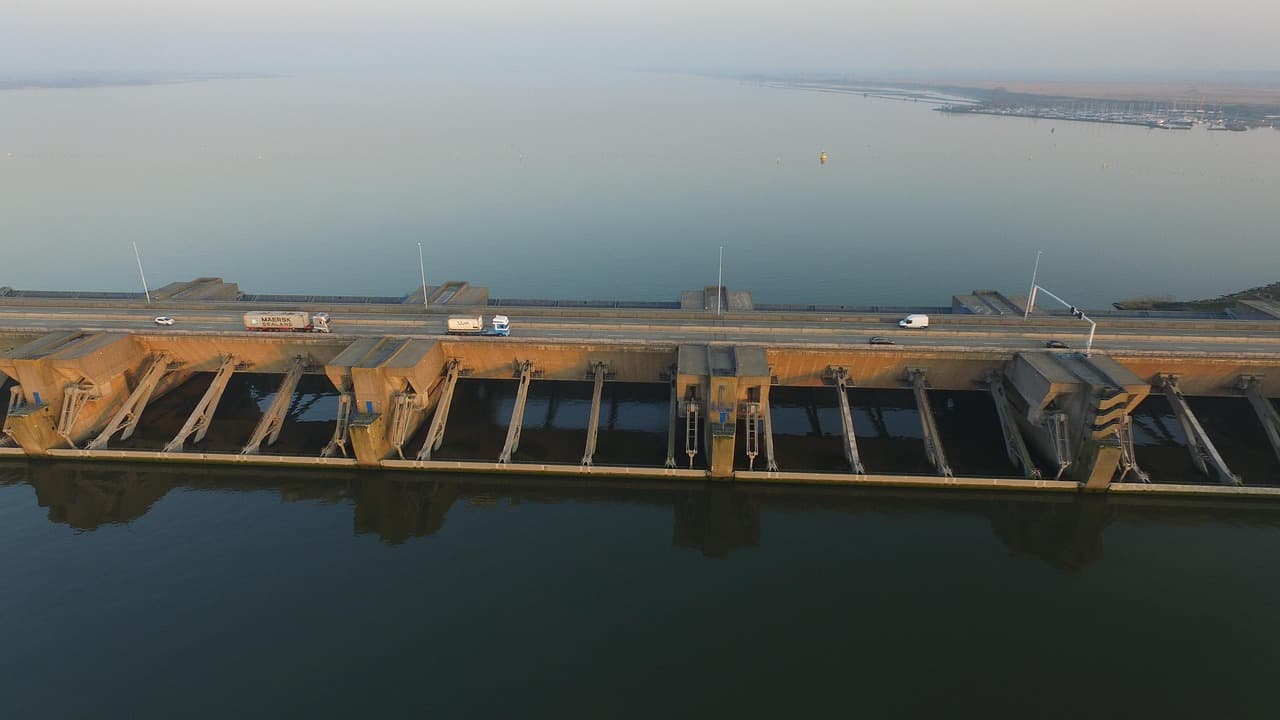The Dutch are at risk of getting stuck: climate risks need action
The risks are mounting rapidly and are high, and the Netherlands must strengthen its climate resilience, scientists say in a new report.
Published on June 25, 2025

As editor-in-chief, Aafke oversees all content and events but loves writing herself. She makes complex topics accessible and tells the stories behind technology.
The Netherlands is at a crucial turning point: climate risks such as sea level rise, drought, and heat waves are putting increasing pressure on our country. According to the latest report by the Scientific Climate Council (WKR), we must act now to secure our future. Existing soil and water systems can no longer cope with the growing pressure; without swift, decisive action, we risk getting stuck. The government, citizens, and businesses must join forces and invest in climate adaptation. The key lies in making important choices about land use and urban development. Waiting is not an option, because delay will lead to higher costs.
Urgency in climate policy
The report emphasizes that climate change is no longer a future scenario; we are already in the midst of change. The Netherlands is becoming warmer and wetter, but also drier, and the effects of this are becoming increasingly clear. Sea level rise along the Dutch coast is accelerating from an average of 1.4 mm per year between 1960 and 1979 to 2.9 mm per year between 1993 and 2021. This brings with it growing flood risks, especially in low-lying areas. Failure to adequately address these challenges could lead to a devastating chain of effects. Recent research shows that without swift and decisive action, the social costs and ecological damage will increase exponentially.
Necessary social and spatial choices
WKR advises that the Netherlands must act quickly to increase its climate resilience. The focus here is on both spatial and social choices, with special attention to the rewetting of peat meadow areas to combat soil subsidence and the adaptation of urban areas to reduce heat stress. Experiments in Friesland, where polders have been temporarily flooded, have shown that raising groundwater levels can have positive effects on both water management and nature. In urban areas, greening is important to compensate for the heat island effect, where temperatures can be up to 8°C higher than in rural areas.
Political perspectives
Although the political landscape is currently in a caretaker status, scientists emphasize that this should not be a reason to postpone the necessary actions. The WKR has recommended that the National Climate Adaptation Strategy (NAS'26) be reviewed in 2026, with concrete steps taken to better prepare the country for climate change.CuspAI raises $30 million to tackle climate crisis with AI-designed materialsAmsterdam-based AI company CuspAI has raised $30 million in seed funding to use AI to research new materials in the fight against greenhouse gases.
Economic implications of climate change
Climate change poses significant economic risks. It is estimated that more than 425,000 homes could face damage from foundation problems caused by earthquakes and drought in the near future. Without intervention, these damages will ultimately lead to a decline in home values and an increase in insurance rates. Businesses and citizens have the opportunity to limit their risks and costs through far-reaching measures such as water conservation and sustainability measures, but these must be well-planned and coordinated with public authorities.
Infrastructure and innovation
The Netherlands has a long history of innovative water management measures such as the Delta Works and the Room for the River policy. However, the current challenges require further innovation and adaptation of our infrastructure.
The WKR suggests that extensive stress tests for infrastructure projects are essential to assess their resilience to climate change. Multi-layered safety systems may prevent disasters such as floods from becoming worse. However, this requires investment in technologies and the development of resilience strategies that can respond to changing weather patterns.
Cooperation for effective adaptation
Effective climate adaptation requires the joint efforts of governments, businesses, and citizens. Measures must take into account the aspect of fairness, as vulnerable population groups are often the most affected by climate-related challenges. Initiatives such as the Resilio project in Amsterdam, which installs green roofs on social housing, can both increase resilience and contribute to a fairer distribution of the benefits of climate adaptation. It is crucial to coordinate national and regional authorities with local initiatives to ensure consistent and effective implementation of adaptation strategies.
Although climate change is a complex and often daunting problem, it also offers opportunities for transformation and progress. The Netherlands has the opportunity to remain a global leader in adaptive water management and sustainable development by taking timely and effective action. By addressing these challenges with innovative solutions and robust policy measures, the Netherlands can not only secure its future but also serve as an example for other countries facing similar problems.
